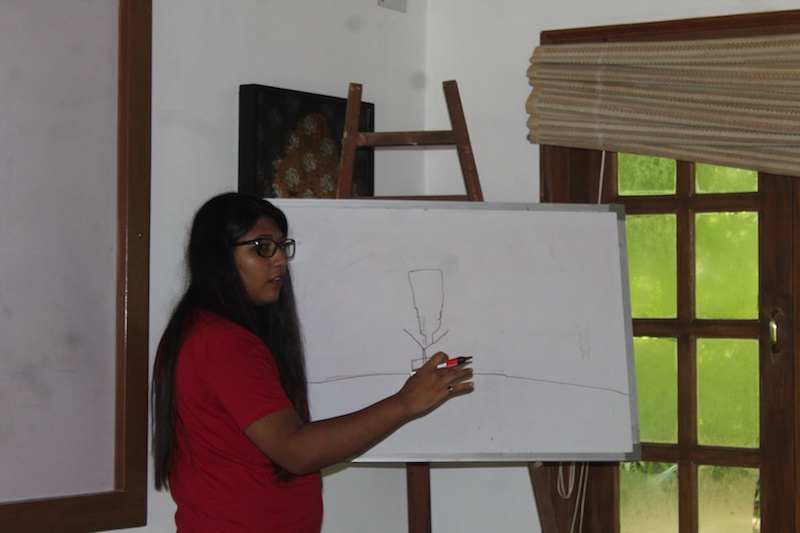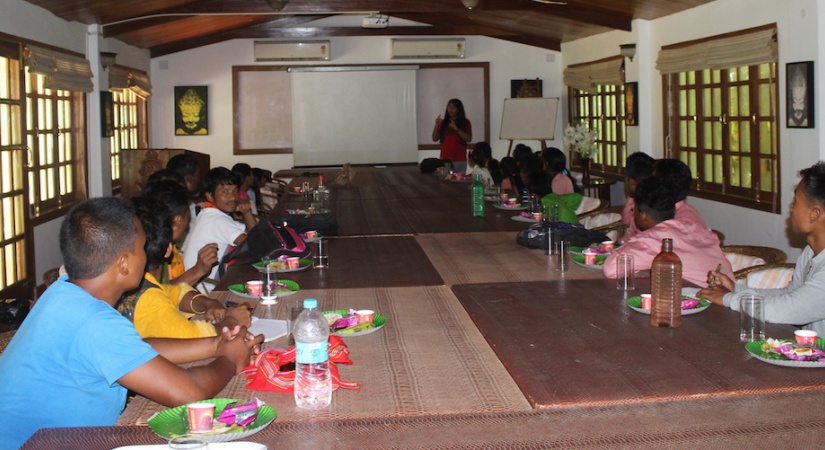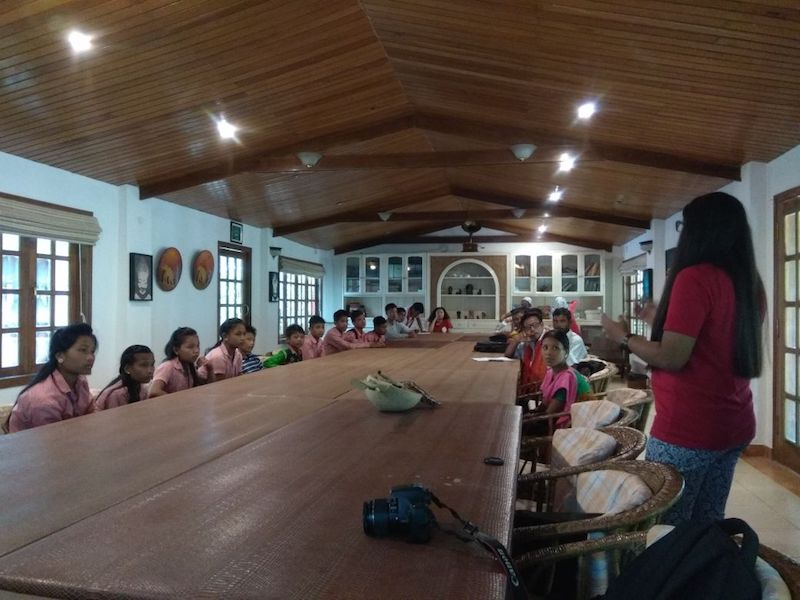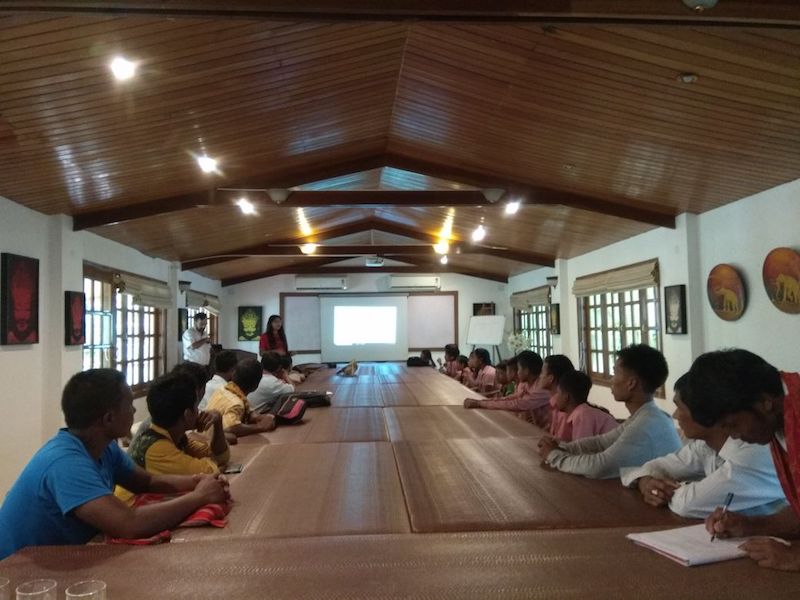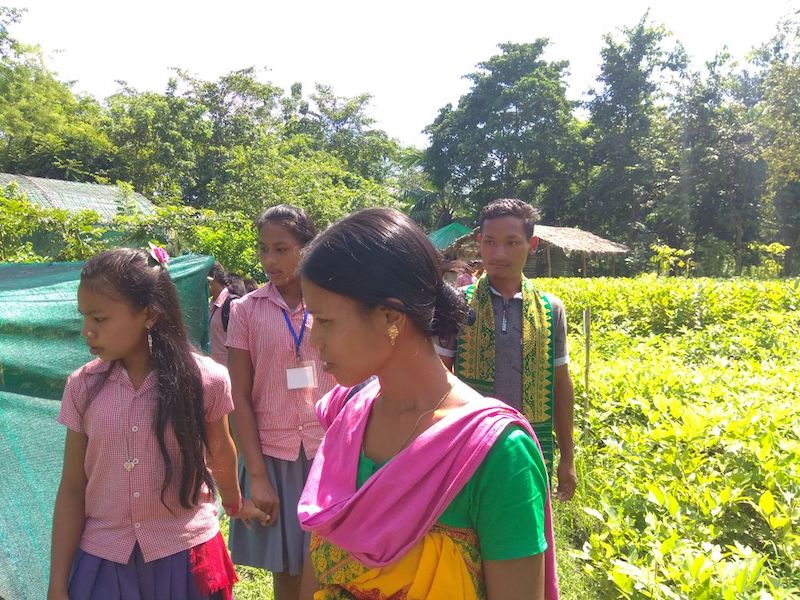Education for sustainable development- Baligaon
Programme Objective:
> Introduce children and elders of Baligaon village to Balipara Foundation.
> Develop an understanding on nature and environment and the importance of conservation of biodiversity.
> 13 students with 6 faculties and 4 village committee members were inducted in this programme by Naturenomics™ School.
With a world population of 7 billion people and limited natural resources, Education for Sustainable Development (ESD) empowers people to change the way they think and work towards a sustainable future. Access to quality education at all levels helps transform societies and behavior needed for sustainable development.
When we talk about the emerging countries, we take various factors into consideration and education is one of them. While urban schools are getting the best of infrastructure, facilities and teachers, schools in rural areas are still struggling for facilities as basic as toilets. Lack of teaching staff and motivation among students are two of the major reasons behind poor education quality in rural schools.
In the vicinity of the Eastern Himalayan Botanic Ark lies Baligaon, with three schools that have minimal facilities to educate the future generation. On 6th Septemebr’18, Balipara Foundation conducted a one day Naturenomics™ School program with the students, faculty members and village committee members of Baligaon.
Through the programme, they were introduced to Balipara Foundation, the Foundation’s activities and goals towards creating social-environmental-economic interdependence in the Eastern Himalayas. And an understanding of the intricate relationship between communities and nature that it nurtures. Conducted by members of the Naturenomics™ School , they were exposed to the principles of Ethnobotany and guided through the medicinal uses of locally available plants. Village elders, who also participated in the programme contributed their knowledge on medicinal uses of herbs and shrubs making it a two way learning process. Followed by a talk on snake identification and snake bite management, which garnered the children’s interest and generated active participation. The programme aimed to put into action the Rural Futures and United Nation’s Sustainable Development Goal of quality education for all.
Led by Sangita, the students and the village elders were also given a tour of the nursery and visited the ethnic museum. As a gesture of appreciation, they donated two musical instrument flute and a cherza to Balipara Foundation, which are now kept in the museum for display.
Impacts:
> Education for sustainable development of the communities.
> Developed an understanding about the importance of plants surrounding us and their significant uses.
> An awareness about snakes and how to manage a snake bite was created.
> Highlighted the importance of maintaining a healthy relationship with nature for the conservation of the biodiversity as well as for a better healthy future.
> Introduce children and elders of Baligaon village to Balipara Foundation.
> Develop an understanding on nature and environment and the importance of conservation of biodiversity.
> 13 students with 6 faculties and 4 village committee members were inducted in this programme by Naturenomics™ School.
With a world population of 7 billion people and limited natural resources, Education for Sustainable Development (ESD) empowers people to change the way they think and work towards a sustainable future. Access to quality education at all levels helps transform societies and behavior needed for sustainable development.
When we talk about the emerging countries, we take various factors into consideration and education is one of them. While urban schools are getting the best of infrastructure, facilities and teachers, schools in rural areas are still struggling for facilities as basic as toilets. Lack of teaching staff and motivation among students are two of the major reasons behind poor education quality in rural schools.
In the vicinity of the Eastern Himalayan Botanic Ark lies Baligaon, with three schools that have minimal facilities to educate the future generation. On 6th Septemebr’18, Balipara Foundation conducted a one day Naturenomics™ School program with the students, faculty members and village committee members of Baligaon.
Through the programme, they were introduced to Balipara Foundation, the Foundation’s activities and goals towards creating social-environmental-economic interdependence in the Eastern Himalayas. And an understanding of the intricate relationship between communities and nature that it nurtures. Conducted by members of the Naturenomics™ School , they were exposed to the principles of Ethnobotany and guided through the medicinal uses of locally available plants. Village elders, who also participated in the programme contributed their knowledge on medicinal uses of herbs and shrubs making it a two way learning process. Followed by a talk on snake identification and snake bite management, which garnered the children’s interest and generated active participation. The programme aimed to put into action the Rural Futures and United Nation’s Sustainable Development Goal of quality education for all.
Led by Sangita, the students and the village elders were also given a tour of the nursery and visited the ethnic museum. As a gesture of appreciation, they donated two musical instrument flute and a cherza to Balipara Foundation, which are now kept in the museum for display.
Impacts:
> Education for sustainable development of the communities.
> Developed an understanding about the importance of plants surrounding us and their significant uses.
> An awareness about snakes and how to manage a snake bite was created.
> Highlighted the importance of maintaining a healthy relationship with nature for the conservation of the biodiversity as well as for a better healthy future.
